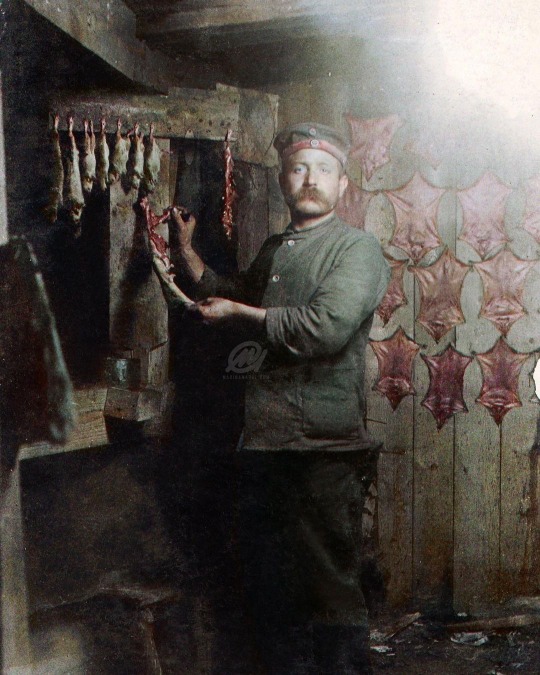#history is awesome
Text
I have to talk about Chester Arthur. His story makes me go crazy. A mediocre president from the 1880s who's completely forgotten today has one of the best redemption stories I've ever heard and I need to make people understand just how cool his story is.
So, like, he starts out as this idealist, okay? He's the son of an abolitionist minister and becomes famous as a New York lawyer who defends the North's version of Rosa Parks whose story desegregates New York City's trolley system.
Then he starts getting pulled into politics and becomes one of the grimiest pieces of the political machine. He wants money, power, prestige, and he gets it. He becomes the right-hand man of Roscoe Conkling, the most feared political boss in the nation, a guy who will throw his weight around and do the most ruthless things imaginable to keep his friends in power and destroy his enemies.
Because Arthur's this guy's top lackey, he gets to be Controller of the Port of New York--the best-paying political appointment in the country, because that port brings in, like, 70% of the federal government's funds in tariffs. He gets a huge salary plus a percentage of all the fines they levy on lawbreakers, and because he's not afraid to make up infractions to fine people over, he is absolutely raking in the dough. Making the rough equivalent of $1.3 million a year--absolutely insane amounts of money for a government position. He's spending ridiculous sums on clothes, buying huge amounts of alcohol and cigars to share with people as part of his job recruiting supporters to the party, going out nearly every night to wine and dine people as part of his work in the political machine. He's living the high life. Even when President Hayes pulls him from his position on suspicions of fraud, he's still living a great life of wealth, power, and prestige.
Then in 1880, his beloved wife dies. While he's out of town working for a political campaign. And he can't get back in time to say goodbye before she dies. Because he's a guy who has big emotions, it absolutely tears him up inside, especially because Nell resented how much his political work kept him away from home. He has huge regrets, but he just moves in with Roscoe Conkling and keeps working for the political machine.
And then he gets a chance to be vice president. The Republican Party has nominated James Garfield, a dark horse candidate who wants to reform the spoils system that has given Conking his power and gave Arthur his position as Port Controller. Conkling is pissed, and he controls New York, and since the party's not going to win the election without New York, they think that appointing Conkling's top lackey as vice-president will pacify him.
They're wrong--Conkling orders Arthur to refuse--but Arthur thinks this sounds like a great opportunity. The only political position he's ever held is Port Controller--a job he wasn't elected to and that he was pulled from in disgrace. Vice President is way more than he could ever have hoped for. It's a position with a lot of political pull and zero actual responsibilities. He'll get to spend four years living in up in Washington high society. It's the perfect job! Of course he accepts, and Conkling comes around when he figures out that he can use this to his advantage.
When Garfield becomes president, Arthur does everything he can to undermine him. He uses every dirty political trick he can think of to block everything that Garfield wants to do. He refuses to let the Senate elect a president pro tempore so he can stay there and influence every bill that comes through. He all but openly boasts of buying votes in the election. He's so much Conkling's lackey that he may as well be the henchman of a cartoon supervillain. On Conkling's orders, he drags one of Garfield's Cabinet members out of bed in the middle of the night--while the guy is ill--to drag him to Conkling's house so he can be forced to resign. He's just absolutely a thorn in the president's side, a henchman doing everything he can to maintain the corrupt spoils system.
Then in July 1881, when Arthur's in New York helping Conkling's campaign, the president gets shot. By a guy who shouts, "Now Arthur will be president!" just after he fires the gun. Arthur has just spent the past four months fighting the president tooth and nail. Everyone thinks he's behind the assassination. There are lynch mobs looking to take out him and Conkling. The papers are tearing him apart.
Arthur is absolutely distraught. He rushes to Washington to speak with the president and assure him of his innocence, but the doctors won't let him in the room. He gets choked up when talking to the First Lady. Reporters find him weeping in his house in Washington. Once again, death has torn his world apart and he's not getting a chance to make amends.
Arthur goes to New York while the president is getting medical treatment, and he refuses to come to Washington and take charge because he doesn't dare to give the impression that he's looking to take over. No one wants Arthur to be president and he doesn't want to be president, and the possibility that this corrupt political lackey is about to ascend to the highest office in the land is absolutely terrifying to everyone.
Then in August, when it's becoming clear that the president is unlikely to recover, he gets a letter. From a 31-year-old invalid from New York named Julia Sand. A woman from a very politically-minded family who has been following Arthur's career for years. And she writes him this astounding letter that takes him to task for his corrupt, conniving ways, and the obsession with worldly power and prestige that has brought him wealth and fame at the cost of his own soul--and she tells him that he can do better. In the midst of a nationwide press that's tearing him apart, this one woman writes to tell him that she believes he has the capacity to be a good president and a good man if he changes his ways.
And then he does. After Garfield dies, people come to Arthur's house and find servants who tell them that Arthur is in his room weeping like a child (I told you he had big emotions), but he takes the oath of office and ascends to the presidency. And he becomes a completely different man. His first speech as president mentions that one of his top priorities is reforming the spoils system so that people will be appointed based on merit rather than getting appointed as political favors with each change in the administration. Even though this system made him president. When Conkling comes to Arthur's office telling him to appoint his people to important government positions, Arthur calls his demands outrageous, throws him out, and keeps Garfield's appointees in the positions. "He's not Chet Arthur anymore," one of his former political friends laments. "He's the president."
He loses all his former political friends. He's never trusted by the other side. Yet he sticks to his guns and continues to support spoils system reform. He prosecutes a postal service corruption case that everyone thought he would drop. He's the one who signs into law the first civil service reform bill, even though presidents have been trying to do this for more than ten years, and he's the person who's gained all his power through the spoils system. He immediately takes action to enforce this bill when he could have just dropped it. He becomes a champion of this issue even though it's the last thing anyone would have expected of him.
He oversees naval reform. He oversees a renovation of the White House. He still prefers the social duties of the presidency, but he's respectable in a way that no one expected. Possibly because Julia Sand keeps sending him letters of encouragement and advice over the next two years. But also because he's dying.
Not long after ascending to the presidency, he learns he's suffering from a terminal kidney disease. And he tells no one. He keeps going about his daily life, fulfilling his duties as president, and keeps his health problems hidden. Once again, death is upending his life, and this time it's his own death. He's lived a life he's ashamed of, and he doesn't have much time left to change. He enters the presidency as an example of the absolute worst of the political system, and leaves it as a respectable man.
He makes a token effort to seek re-election, but because of his health problems, he doesn't mind at all when someone else gets the nomination. He dies a couple of years after leaving office. The day before his death, he orders most of his papers burned, because he's ashamed of his old life--but among the things that are saved are the letters from Julia Sand, the woman who encouraged him to change his ways.
This is an astounding story full of so many twists and turns and dramatic moments. A man who falls from idealism into the worst kind of corruption and then claws his way back up to decency because of a series of devastating personal losses and unexpected opportunities to do more than he could have ever hoped to do. I just go crazy thinking about it and I need you all to understand just how amazing this story is.
#history is awesome#presidential talk#i thought about his story again this morning#and was once again struck by the desire to chase people down and make them understand just how amazing this story is#and instead of harassing random strangers i decided to inflict it on tumblr again#my original essay was rather too long and dry and tangled up in too many other details#and didn't quite capture the 'i want to chase you down and look you in the eye and make you freak out about this with me' vibe of this stor#this still doesn't quite capture it but at least it's shorter#and prevents me from rambling to unsuspecting family members#sorry for inflicting this on you again but what else am i supposed to do?
4K notes
·
View notes
Text



Fun fact: The pronunciation of American English is closer to the pronunciation in William Shakespeare's time (1564-1616) than in British English. Today's American accent is more closely related to what Shakespeare heard while he wrote. People generally assume that Shakespeare's English is related to British English, but in Early Modern English the letter "r" is still pronounced. During the 18th century the "r" was dropped from pronunciation when it was the last syllable of a word in southern British English. American English froze in how we pronounce letters, which is why we sound more like Shakespeare than British English.
#histoire#history#history in the making#history is awesome#history of science#history stuff#historyposting#today in history#history lesson#connecticut#history lover#william shakespeare
179 notes
·
View notes
Text

4 notes
·
View notes
Text
hey does anyone wanna hear about Maya Angelou's absolutely badass grandmother?
#maya angelou#is the best#history#history is awesome#pls someone#say you wanna hear about it#bc i am DESPERATE to talk abt her
4 notes
·
View notes
Text
youtube
Short documentary by the American government about my country (despite the Spanish title, the video is in English)
youtube
Another one, focused on education.
#Uruguay#historical footage#it's such a curious and informative watch#on one hand because it's really sad in the way I as a contemporary uruguayan can see all the ways#in which we have decayed#But also seeing an American-government-made documentary that so heavily praises#in a wwii and early cold war context#things that would nowadays sound socialist/communist to American ears#Also stuff like seeing the Social Security Bank building surrounded by very small trees#that I have seen as these huge old trees all my life#pretty much everyone on that footage is gone#but the trees remain#borrowing fictionadventurer's tag#history is awesome#but in a primary sources way rather than an amazing history way#also hear me mourning the destruction of the low and middle range national production of wool#Youtube
11 notes
·
View notes
Text

This is absolutely what I'll be wasting time reading about at work today
3 notes
·
View notes
Text
#australia#prehistoric#australian#wildlife#animal video#wildlife videos#animal posting#paleontology#paleoblr#wild animals#animal#animals#animalblr#history#ancient history#history post#history posting#history is fun#history is awesome#history tumblr#tumblr recommendations#recommend#recommendation#youtube#youtube content#youtube recommendations#youtube video#video recommendation#youtube shorts#shortvideo
2 notes
·
View notes
Text
Happy Armistice day!
I did not manage to make what I wanted to celebrate the end of the Great War , apologies
On an other note, I have decided to open a secondary blog dedicated to modern times , as I am in need of studying WW1 for school!
Here's a link to the second blog: sane-person.tumblr.com
(Very original name I know)
I will continue to work on the main blog focusing on Medieval Times and slowly going from the Middle ages to recent times, while for the secondary blog it will be based on WW1! (and after that it'll be WW2 and recent times too as that is the program I'll study this year)
Thank you for reading and a blessed night or day to all!
25 notes
·
View notes
Text
World’s Oldest Jokes
1.The World’s oldest joke traced back to 1900 BC is a saying of the Sumerians, who lived in what is now southern Iraq and goes: “Something which has never occurred since time immemorial; a young woman did not fart in her husband’s lap.”
This one from Sumeria in 1200 BC, is brainteaser. “Three ox drivers from Adab were thirsty: one owned the ox, the other owned the cow and the other owned the wagon’s load.
“The owner of the ox refused to get water because he feared his ox would be eaten by a lion; the owner of the cow refused because he thought his cow might wander off into the desert; the owner of the wagon refused because he feared his load would be stolen.
“So they all went.
“In their absence the ox made love to the cow which gave birth to a calf which ate the wagon’s load.
“Problem: Who owns the calf?”
2. The world’s second oldest joke was found in the Ancient Egyptian story book known as the Westcar Papyrus. It goes:
How do you entertain a bored pharaoh?
“You sail a boatload of young women dressed only in fishing nets down the Nile and urge the pharaoh to go catch a fish.” There is another -A sex joke, Ancient Egypt, 30 BC. “Man is even more eager to copulate than a donkey. His purse is what restrains him.”
3. Greek literature is rich with puns and riddles such as: A pun on a name, Ancient Greece, 800 BC. In Homer’s “The Odyssey” — written 2,800 years ago — Odysseus indulges in some dark humor.
“Odysseus tells the Cyclops that his real name is “nobody”.”
“When Odysseus instructs his men to attack the Cyclops, the Cyclops shouts: “Help, nobody is attacking me!”
“No one comes to help.”
In “Oedipus Tyrannus,” by Greek playwright Sophocles, a character gives the following line, which is less of a joke and more of a brainteaser.
“Question: What animal walks on four feet in the morning, two at noon and three at evening?
“Answer: Man. He goes on all fours as a baby, on two feet as a man and uses a cane in old age.”
As well as, “Philogelos” (or “Laughter-Lover”), written by Greeks Hierocles and Philagrius in the 4th century.
“Asked by the court barber how he wanted his hair cut, the king replied: “In silence”.”
4. “Your mamma” joke, Ancient Rome, between 63 BC to 14 AD.
“The Emperor Augustus was touring the Empire, when he noticed a man in the crowd who bore a striking resemblance to himself.
“Intrigued he asked: ‘Was your mother at one time in service at the Palace?’
“‘No your Highness,’ he replied, ‘but my father was.’”
5. The oldest British joke dates back to the 10th Century and reveals the bawdy face of the Anglo-Saxons — “What hangs at a man’s thigh and wants to poke the hole that it’s often poked before? Answer: A key.”
4 notes
·
View notes
Text

Can I get this for joints? 🤔👀🤔👀🤔👀
0 notes
Text
i like to think that i have lots of roman empire. then i finally found out today what is really REALLY my roman empire. it's the dead from the past. i was reading the salem witch trials. and yeah it was terrible and all that. but after reading it, all i can think of is the people who died. it was in the 17th century, you know. how and why did it really happened? are the girls to be blame? are these girls the same as to the girls today? it's amazing how the past exist and yet we don't acknowledge it enough. the people who cared about them died. and time moves on. time moves for no one. and then i think about people who died and will die alone. no marks. and then i think of this generation dying. what will the future generation thinks of us? will they care? like how a student today thinks history is boring. will they think our generation is boring? just a pile of documents and dead people. huh.
#history is awesome#i dont if im ranting or not#ifykyk#because i cannot write what my messy mind really wanted to say#death
0 notes
Text
One of the cool things about the American Girl books is how they focus on the domestic side of history. Other books set during wartimes might have done plots like, "Felicity helps George Washington" or "Molly tracks down a German spy". But this series stays grounded in the daily life that was still going on amid all these big events. It focuses on the things that kids can relate to in daily life--school and holidays and birthdays--which helps sell the idea that people have always been people, even while history was happening around them.
It also has a uniquely feminine view of history--which shouldn't be a surprise in a series called American Girl, but I want to appreciate how the books, for the most part, engage with female life in those eras on their own terms. The history sections at the back might mention that girls had a harder time getting an education or had certain restrictions, but within the stories themselves, the girls aren't sitting around complaining about it. They're not lamenting how terrible it is that they don't live in our modern times, which so much historical fiction can do. They're just living their lives and even finding fulfillment. Felicity doesn't get the same education as the boys, but the skills she learns are useful in her society and she likes her lessons. Samantha gets to learn from all Cornelia's suffragette leanings, but she still wears bows and ruffles and frilly dresses instead of, like, insisting that girls should wear trousers. It presents a clear-eyed view of history that teaches kids about these eras without imposing too much of a modern, judgemental lens upon it. And that makes these books a surprisingly good intro to American history.
2K notes
·
View notes
Text



Today in 1882, Thomas Edison, and his partner Edward H. Johnson created the very first string of electric lights intended for a Christmas Tree. People originally illuminated their trees with candles, which as you can guess was a dangerous practice leading to many house fires. Edison and Johnson hand-wired 80 red, white, and blue bulbs, and hung them around the Christmas tree. During this time many people mistrusted electricity, it wasn't until 1895, when President Grover Cleveland had the White House family Christmas tree illuminated by hundreds of multicolored bulbs, people started to change their minds. It is important to remember for the time being, families would have to hire a wire man which would have cost $2,000 in today's dollars. It wouldn't be until 1903 when General Electric began to sell preassembled kits of stringed Christmas lights, as a more affordable option.
#histoire#history#history in the making#history is awesome#history of science#history stuff#historyposting#today in history#history lesson#connecticut#thomas edison#christmas lights#christmas#news#history will say they were best friends#vintage#xmas#history is all you left me#history lover#history geek#fyp#history drama#history daily#history photos#history has its eyes on you#history of music#history is important#history is fun#usa#history things
135 notes
·
View notes
Text
#nearly#dua lipa’s nearly nude barbie premiere look was ‘too much’ and she looks ‘lost’ without a designer collab#almost#not quite there#irritant#belgium#great war#history is awesome
1 note
·
View note
Text
Still can't believe I used to hate history in middle school and said I'd never study it in my life. For context, I'm talking about Italian middle school.
I had a fascist history teacher who'd say her ideas and we had to accept them. I saw no point in learning war names and dates, and history looked boring and hateful, so... I refused to. I got bad grades and my parents made my life hell as punishment.
Here I am, studying history by myself, and finding out there's more to hate, names and dates. There are PEOPLE!!! There are philosophers, artists, writers, scientists, there are consequences in everything around us.
Deply understanding a time period feels mind-blowing to me. I enjoy history so much. The thing I used to hate the most.
The problem isn't young people not wanting to study. The problem is school.
0 notes
Text

Yeshua means Joshua. I petition we go back to calling the supposed son of god Joshua, all in favor say aye
For everyone who wants to know the actual reason his name became Jesus Christ from Yeshua Nasraya, read this cool article. History is neat.
#joshua fucking christ#jfc#jesus christ#history is awesome#history is important#yeshua#joshua#name origins#name origin#knowledge#learning is fun#information#informative#informational#educate yourself#educate yourselves#educational#get educated#education#the bible#greek#hebrew#aramaic
0 notes